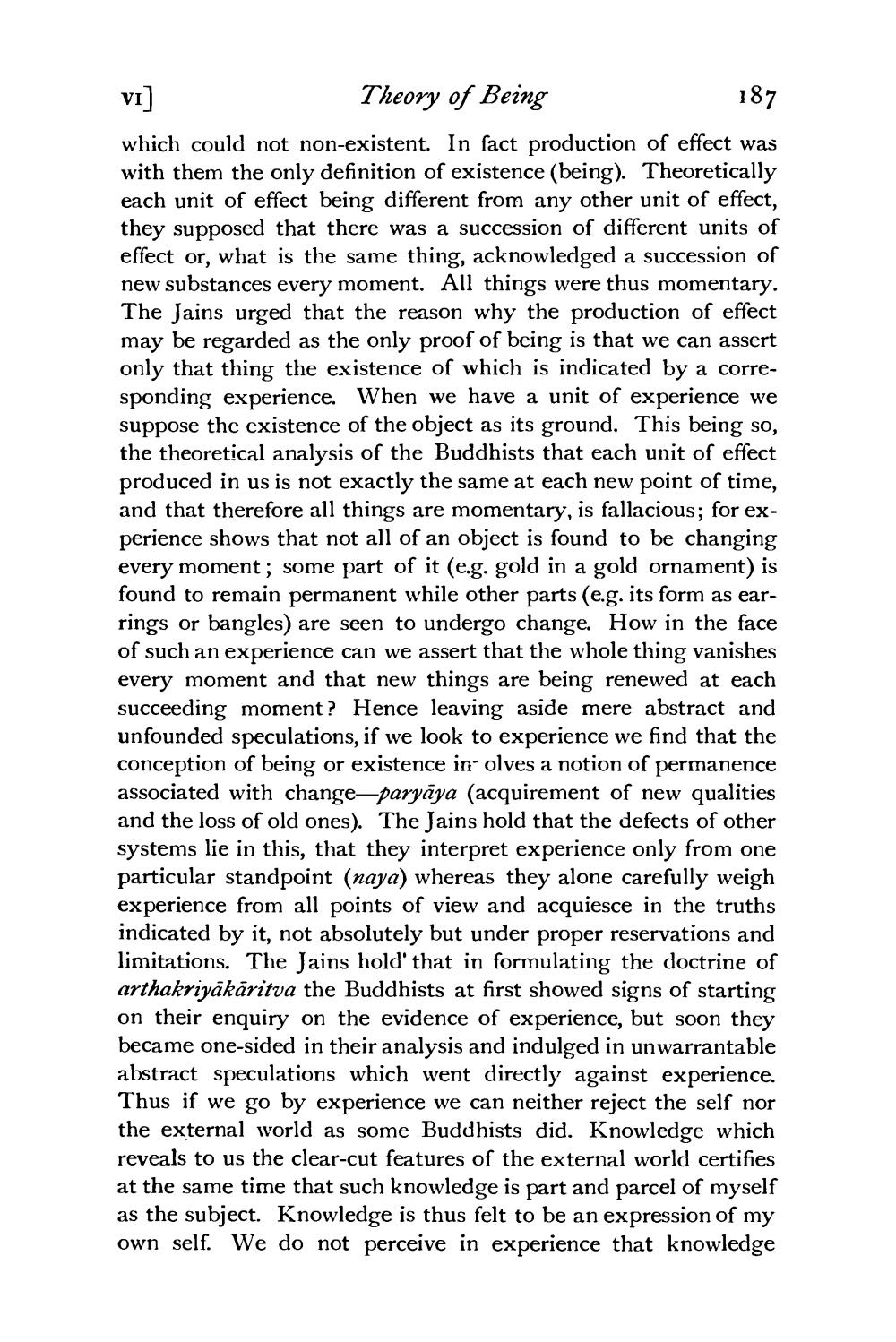________________
VI]
Theory of Being
187
which could not non-existent. In fact production of effect was with them the only definition of existence (being). Theoretically each unit of effect being different from any other unit of effect, they supposed that there was a succession of different units of effect or, what is the same thing, acknowledged a succession of new substances every moment. All things were thus momentary. The Jains urged that the reason why the production of effect may be regarded as the only proof of being is that we can assert only that thing the existence of which is indicated by a corresponding experience. When we have a unit of experience we suppose the existence of the object as its ground. This being so, the theoretical analysis of the Buddhists that each unit of effect produced in us is not exactly the same at each new point of time, and that therefore all things are momentary, is fallacious; for experience shows that not all of an object is found to be changing every moment; some part of it (e.g. gold in a gold ornament) is found to remain permanent while other parts (e.g. its form as earrings or bangles) are seen to undergo change. How in the face of such an experience can we assert that the whole thing vanishes every moment and that new things are being renewed at each succeeding moment? Hence leaving aside mere abstract and unfounded speculations, if we look to experience we find that the conception of being or existence in- olves a notion of permanence associated with change-paryāya (acquirement of new qualities and the loss of old ones). The Jains hold that the defects of other systems lie in this, that they interpret experience only from one particular standpoint (naya) whereas they alone carefully weigh experience from all points of view and acquiesce in the truths indicated by it, not absolutely but under proper reservations and limitations. The Jains hold' that in formulating the doctrine of arthakriyākāritva the Buddhists at first showed signs of starting on their enquiry on the evidence of experience, but soon they became one-sided in their analysis and indulged in unwarrantable abstract speculations which went directly against experience. Thus if we go by experience we can neither reject the self nor the external world as some Buddhists did. Knowledge which reveals to us the clear-cut features of the external world certifies at the same time that such knowledge is part and parcel of myself as the subject. Knowledge is thus felt to be an expression of my own self. We do not perceive in experience that knowledge




